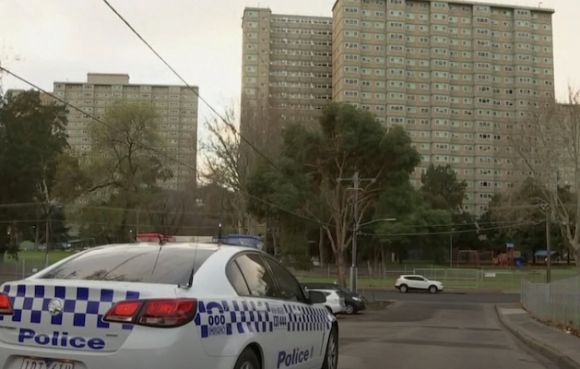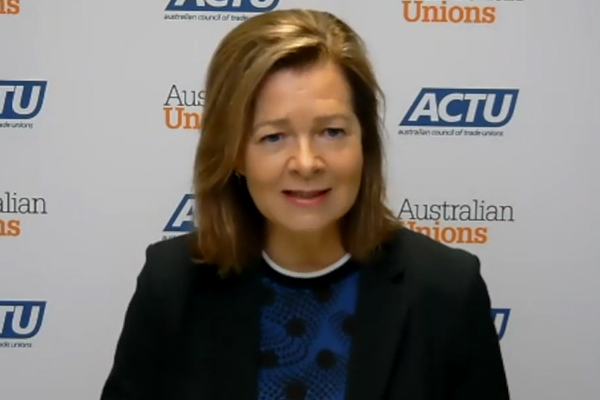William Olson gives a first-hand account of how Melbourne's hospitality industry was affected before and after the COVID-19 pandemic hit.
FOR THOSE IN Melbourne’s vibrant hospitality industry and its events sector, in particular, things were going so very well in the first few months of 2020. So typical for Melbourne, often hailed as “the events capital of Australia”, if not the entire world. But optimism was cherry-ripe for the rest of the year, even as the summer and autumn months are annually busy for our sector.
Many of us in corporate hospitality, working for multiple casual catering and event companies, had no shortage of weekly event work. From the Australian Open in the last part of January to appointments every weekend thereafter with A-League soccer, basketball with the NBL, racing at Flemington and elsewhere. Also major summer and autumn concerts, with corporate functions and set-up and pack-down days in between.
Days off were few and far in between; for many of my colleagues as well as myself, work was keeping us very busy. Everything was transitioning nicely into the next busy campaign, towards the AFL and NRL seasons, as well as the Melbourne Food and Wine and Melbourne International Comedy festivals after the Formula One Grand Prix at Albert Park had wrapped.
The F1 Grand Prix — that’s where it all began to go south for us.
“Coronavirus pandemic” — two words that we would all know and learn the impact of within the coming hours, weeks, and months as it hit our industry hard.
That in itself – the impact on businesses and industries – would not be unique within the big picture of the Australian economy, whether it be events in Melbourne or anything else in any other bustling metropolitan, suburban or regional setting around Australia. Or anywhere else around the globe, either.
But that Friday at Albert Park in March – and in a darkly humorous way, it was fitting that it would have fallen on a Friday the 13th – the ultimate cancellation of the F1 Grand Prix itself was a comedy of errors bouncing between negotiations among the Australian Grand Prix Corporation, the Office of the Victorian Premier, the City of Melbourne, Victorian Major Events, among other stakeholders.
But what about the event’s official corporate caterers? The instructions we were given were, in essence, “we’re working, until we’re told otherwise”. That “otherwise” came to us in a matter of minutes, by 10:00 A.M.
And with that cancellation, a virtual avalanche of others followed. Anything which had corporate and/or members crowds for us wound up getting cancelled immediately. The ongoing A-League and NBL seasons, the Super Rugby season that just started, numerous concerts, festivals, functions and so forth that we had all been previously booked in for were gone. And then the AFL and NRL seasons were postponed indefinitely, along with all of the work that went with them.
Hundreds of hours of work over the coming weeks and months got cancelled within a matter of minutes. Suddenly, we went from completely too busy for casual work to suddenly having nothing (except for the “stay at home” directive).
So where to, after this unexpected and unprecedented course of events? Would we get back to work soon, or would we even work again in 2020? Those doubts filled my mind and those of my co-workers as well.
Amid that mindset, it was time to make the best of a bad situation. Personally, fearing how my loss of work equated to a loss in income and thereby hamper my ability to fund rent, groceries and utilities for my wife and myself, I sped off to my local Centrelink office when they opened the following Monday to get onto Newstart.
The Morrison Government, for all of its faults as has been the case with LNP governments over the years, deserved credit to say in the lead-up to the pandemic that any fast-tracking would take place on new hardship-based Newstart claims. Therefore, I acted fast, to beat the inevitable rush.
My colleagues in event hospitality, who often praise me for my proactive approach to work and many things outside of it, sought my advice. This was especially the case in April when Federal Treasurer Josh Frydenberg announced the rebranding of Newstart as JobSeeker, as well as the creation of the JobKeeper scheme. I was confused, with all of my various casual employers in my sector of the industry and the nature of my casual event hospitality work. So for the first time in a long time, I felt helpless to offer guidance.
As for that confusion over JobSeeker versus JobKeeper, it was driving me crazy and many up-and-down days with my mental health were hitting. In my quest to find out which scheme would be better for me, frustrated with the runarounds I got from the Australian Tax Office and Centrelink, I emailed several federal MPs who I felt had influence around the social services portfolio.
None other than Bill Shorten rang me back, within 20 minutes of receiving my email, too. The fact that he, in possession of this shadow portfolio, rang me back faster than I’ve ever received some pizza deliveries impressed me straight away.
However, in an analysis of my situation – and by extension, the situation of others in my sector of the industry – even Shorten himself felt confused.
He told me:
“Instead of waiting around to see which or how many of your employers get eligibility confirmed for JobKeeper, why not stay on JobSeeker? My gut tells me you should stay on JobSeeker, because it seems like a guaranteed thing for you.”
My reply? “Bill, I trust your gut.”
He made a good point about the delays in confirmation from employers about JobKeeper — almost all of my colleagues had to endure their own nervous energies waiting for responses themselves. But what swung my mindset was the fact that JobSeeker would give my wife – also on JobSeeker herself, as a long-term unemployed retail worker – and I the best chance to survive once the pandemic ends.
My ultimate advice to my colleagues was that “everyone’s situation is different”. The vast majority of my colleagues are younger and single; I’m middle-aged and married. As such, the majority of those colleagues opted for JobKeeper and, from what I have heard, have been receiving their payments and back-payments without fail. The same with us, with regard to receiving JobSeeker, it has enabled us to maintain paying rent, staying stocked up on groceries and getting our bills and utilities caught up, as well as investing enough into our local economy in the way of starting new projects around our house.
Money-wise, everything has worked out well to this point. But from a mental health standpoint, it would feel better if we all were working.
While some other hospitality workers had gone back to their jobs in the retail sector – in restaurants, cafes, pubs, bars and so forth – the obstacles in the event hospitality sector are very real. As the AFL and NRL adapted to relocating into interstate hubs while the state of Victoria endured a monumental spike in COVID-19 cases and the consequences which followed, the evidence points to workers in the events sector being among the last to return to work.
But for some, thoughts are even worse than that.
In my last shift before the pandemic officially hit, one of my managers told me: “Prepare for no work for two months.” Now we’re approaching the end of the fourth month. At this time, compared to when the pandemic first hit, many of my events colleagues have already relegated themselves into thinking that any possibility of work for 2020 is done.
Imagine the impact, psychological as well as economic, of that on the industry’s workers in a major Australian city with a great reputation for pulling off major events.
William Olson is a freelance journalist and hospitality professional. You can follow William on Twitter @DeadSexyWaiter.
Related Articles
- Journalists should question Scott Morrison over Parliament closure
- Common sense must dictate COVID-19 response
- Post-pandemic cities: Urban life in the wake of COVID-19
- The global economic transformation after COVID-19
- Reasons behind America's catastrophic coronavirus death toll
 This work is licensed under a Creative Commons Attribution-NonCommercial-NoDerivs 3.0 Australia License
This work is licensed under a Creative Commons Attribution-NonCommercial-NoDerivs 3.0 Australia License
Support independent journalism Subscribe to IA.















